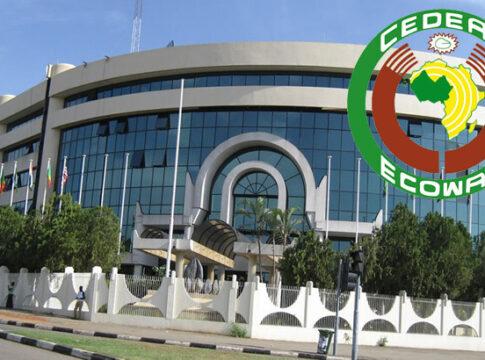As West African leaders convene in Nigeria’s capital for a pivotal summit, they face the dual challenges of addressing the recent departures of Mali, Burkina Faso, and Niger from the Economic Community of West African States (ECOWAS) and moving forward with ambitious infrastructure projects designed to spur regional growth.
The summit comes at a time when the political landscape of West Africa is shifting, with military rulers in Mali, Burkina Faso, and Niger choosing to exit ECOWAS, a bloc that has long been seen as a stabilizing force in the region. This withdrawal, reminiscent of the UK’s Brexit from the EU, has stirred debates on governance within the bloc. The departure of these nations means ECOWAS loses 76 million people and substantial territorial expanse, including vast sections of the Sahara, challenging its prestige.
Amidst this political turbulence, ECOWAS is poised to launch a transformative infrastructure initiative—a 1,028 km highway stretching from Abidjan in Ivory Coast through Ghana, Togo, and Benin to Lagos, Nigeria. With $15.6 billion in funding secured from international investors, construction is set to begin in 2026, aiming for completion by 2030. This four-to-six-lane motorway is projected to generate 70,000 jobs and significantly enhance trade and connectivity across West Africa’s bustling coastal cities.
Experts suggest that this infrastructure project, akin to the European Union’s integration efforts post-World War II, might serve as a catalyst for economic and political unity in the region. According to Dr. Adewale Akinola, a regional development specialist at the University of Lagos, “The highway not only promises to boost economic competitiveness but also offers a tangible incentive for reintegration.”
Already, one-stop frontier posts at borders are easing transit, reducing corruption, and facilitating smoother trade flows. By strategically integrating a new railway line alongside the highway, ECOWAS aims to further enhance connectivity among major West African ports.
Despite the current impasse, there is hope that increased prosperity in the remaining ECOWAS countries might entice the breakaway states to reconsider their positions. Economic interdependence remains strong, with significant cross-border trade in livestock and agricultural products, as well as labor migration patterns that tie these countries to their coastal neighbors.
The continued use of the West African CFA franc by Mali, Burkina Faso, and Niger, despite their political withdrawal, underscores deep economic ties that could be leveraged for future reconciliation.
As ECOWAS navigates this challenging period, the success of the coastal highway and its associated projects could redefine the bloc’s identity and mission. By fostering growth and demonstrating effective governance, ECOWAS hopes to mend political rifts and reestablish itself as a beacon of stability and prosperity in West Africa.
Ultimately, the integration of infrastructure and economic policy may serve not only as a bridge across geographic distances but also as a pathway to political and social cohesion across the region. As the summit unfolds, the leaders’ resolve and vision will be key in shaping the future of a unified West Africa.


